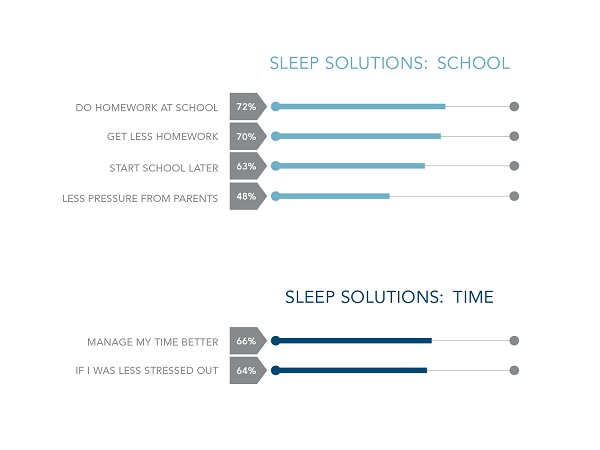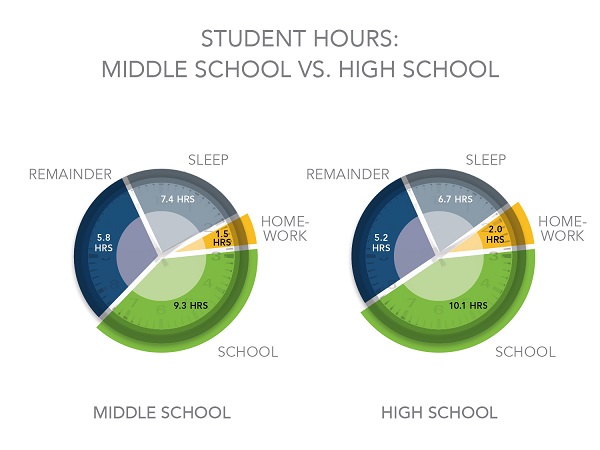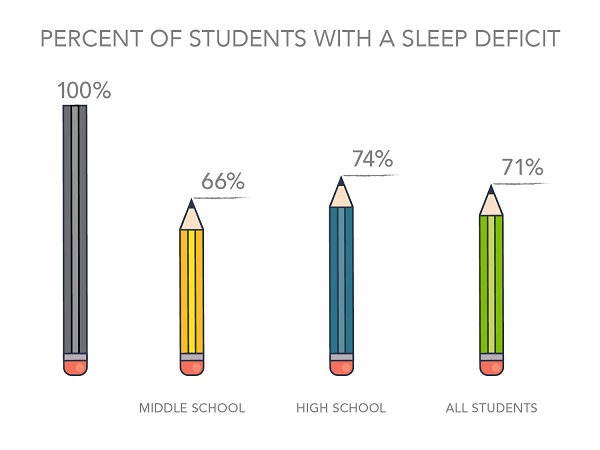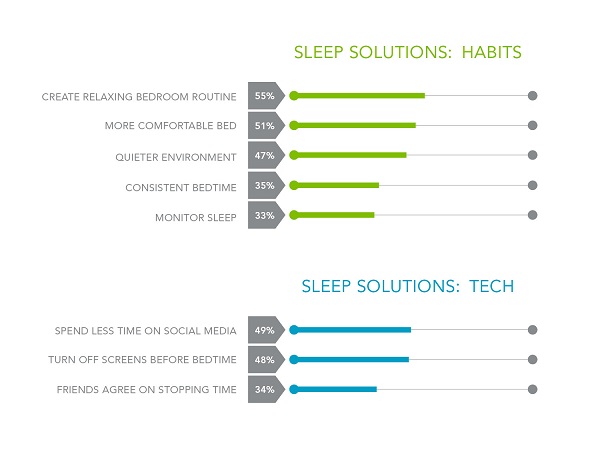Insights from GENYOUth in partnership with Sleep Number and in counsel with Edelman Intelligence looks at teen sleeping habits and examines issues, trends and solutions to tackle massive sleep deprivation amongst middle and high school students.
Subtitle
To read all of the key insights from the Teens and Sleep Survey, view the report, click here.
5 Key Insights From Our Survey on Teens & Sleep
Earlier this year, we partnered with Sleep Number to gain some insight on teen sleep patterns in America. Teens & Sleep Survey: Insights from GENYOUth, in partnership with Sleep Number and in counsel with Edelman Intelligence is the result of experience from over 2,000 teens across the US and we’re excited to share what they had to say. This is also the first part of Sleep Number’s social impact commitment to improve 1 million children’s lives by the year 2025.
We know that sleep–just like exercise and nutritious foods–plays an important role in overall health. But what we didn’t know were specific details on the sleep habits of youth and how these habits are impacting their lives. We were interested in learning more; what we uncovered, unfortunately, revealed a massive sleep deficit among our nation’s teens. GENYOUth CEO, Alexis Glick, states that students’ “to-do list, and the expectations on them are greater than ever,” and it’s directly impacting their sleep. Sleep Number CEO, Shelly Ibach, adds to this by saying that not only are students not getting enough sleep, but “they are not getting quality sleep.”
The survey found that on average, 71% of middle and high school students are sleep deprived. We aimed to investigate the true attitudes, trends, and causes of the sleep deprivation problem among teens aged 13-18 in order to come up with realistic and hopefully implementable solutions. Read below to learn about just a few of our most surprising findings.
- Teen sleep deprivation actually has less to do with technology and social media than you may think. We learned that while technology may be a factor, early start times and excessive homework can play an even bigger role. In fact, only about 20% of sleep deprived students see their deficit as being volitional, while the largest chunk of students, 42%, blame their hefty to-do list as the reason for their deficit. Most middle school students sleep around 7.5 hours a night, and as they move up to high school, where the volume of homework becomes even greater, that number gets smaller. Youth are recommended to get around 8-10 hours of sleep per night, but with the amount of homework and extracurriculars they have on their plate, it becomes impossible to do so–especially when they are expected to be at school at 7am. When asked about possible solutions to sleep deprivation, 70% of students suggested that they get less homework, while 63% of students suggested a later starting time for classes.

2. Many students have a longer work day than the average American adult. Our findings revealed that high school students, on average, are tackling a 12 hour day, 5 days a week. This means that they are “clocking-in” 60 hours a week on average, which we know to be far too much for developing adolescents. This long day results from the fact that students aren’t really “off the clock” once they get home because they have to complete their assignments before they can rest for the day. This means that on top of their 10+ hour school day, they are also completing around 2 or more hours of homework per day.
3. Students are losing a full night of sleep every week. If we look at our findings more definitively, we see that teens are losing an average 1.7 hours of sleep per night. Multiply that by 5 and you get 8.5 hours of sleep per week. This also means that students are getting about 25% less sleep than the recommended amount, making it difficult for them to grow and think critically, let alone complete all of the tasks at hand. As the up and coming generation of thinkers, doers, and leaders, our youth need enough sleep to reach their full potential–but losing 1.7 hours of sleep per night for years would take a toll on anyone, especially those of us that are still in the developmental stages.
4. The majority of students are actually conscious of the importance of sleep and living a healthy lifestyle. Many may think that teens are sleep deprived because they choose to be, but the reality is that they understand the benefits of sleep, they just don’t have the lifestyle that allows them to get the recommended 8-10 hours. In fact, 65% of students say they are conscious of eating healthy foods and 63% say they exercise regularly, but 71% of students say they are sleep deprived. Despite this number, 67% state that sleep is a priority for them. Based on this data, it is clear that students would like to sleep more, but aren’t getting the chance to.
400
5. Students recognize their role in the predicament, and admit they could be better at managing their time. They also acknowledge the importance of creating a relaxing bedtime routine, as well as a comfortable bed, and a quiet environment. It sounds like they have all the knowledge they need to pursue their healthy lifestyle, but it doesn’t help when their schedule is full and they aren’t able to handle everything on their plate. They need positive reinforcement and encouragement from friends and family around them to manage their time in a more efficient way. While a big part of teen sleep deprivation can be blamed on their to-do list, there are other factors at play. And helping students complete their tasks efficiently while also providing them with a comfortable sleep environment is just a couple of ways that we can help make a change.
So what can we do to help? While the problem rests partially in the system, it’s important that we are aware so that we can actively work to lessen the repercussions of sleep deprivation. As parents, educators, and family, it is essential that we are encouraging the youth around us to manage their time properly, to find a calming bedtime routine, and to not put too much on their plate.
One of the best ways to relax and unwind before bed is to do things like yoga or meditation. Some people also listen to classical music before falling asleep. Whatever your preferred method of relaxation, it’s important to create a calming and inviting bedtime environment by making sure that your bed is comfortable and that your mind is in the right place. A nighttime routine is also important in helping teens de-stress from the pressures of the day. All in all, teens in America are under too much stress, and it’s severely affecting their ability to sleep–that’s why it’s more vital than ever that we teach and encourage them to adopt healthy habits, and prioritize sleep as a major component of their health.